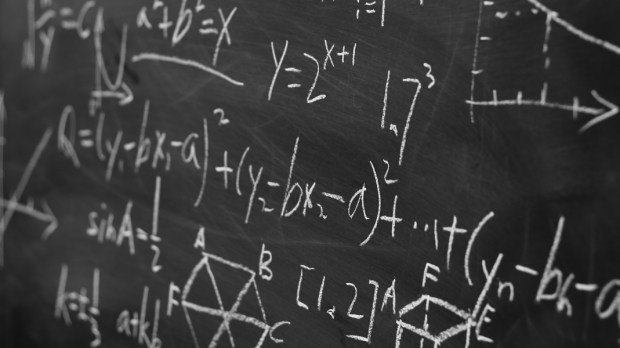Lenten Campaign 2025
This content is free of charge, as are all our articles.
Support us with a donation that is tax-deductible and enable us to continue to reach millions of readers.
The story begins with a mistake. The year is 1939, Berkeley University in California. George Dantzig arrives 20 minutes late for his statistics class. His professor, Jerzy Neyman, has already written two problems on the board and has started his lecture.
Embarrassed, the latecomer takes his seat in the lecture hall as discreetly as possible. He copies the problems down in his notebook as an assignment, and listens attentively to the rest of the lecture.
Back home, he tackles the homework that he finds “a little more difficult than usual.” Several days later, the doctoral student finally gives his homework to his professor, apologizing for they delay. Professor Jerzy Neyman puts the sheets in his bag without paying attention to them.
Then there’s no news for a while. George waits anxiously for his professor’s evaluation of his work.
Six weeks later, he receives a visit from his excited professor: The “homework” problems the George solved are in fact two famous unsolved statistical problems.
Having arrived late, George hadn’t realized that Prof. Neyman had written them on the blackboard at the very beginning of the class to show his students well-known unresolved challenges. The solutions George found in such a short time were so elegant that his teacher had one of them published in a prestigious mathematical journal.
The most remarkable thing in this story is this admission by George Dantzig, years later, when he became a recognized mathematician: “If I had known that the problems were not homework but were in fact two famous unsolved problems in statistics, I probably would not have thought positively, would have become discouraged, and would never have solved them.”
It’s a practical application of a quote famously attributed to Mark Twain: “They didn’t know it was impossible, so they did it.”
George was able to solve the problems because he didn’t know they were “impossible” to solve. Is this situation unique or does it have a more universal scope? Is it an amusing anecdote, or an example to follow?
It’s clear that George Dantzig was already an exceptional student. It might be useful, however, to look more closely at one condition that allowed him to achieve this amazing result.
Everything started from a misunderstanding, or a misinterpretation. How can this lead to better results? George had no prejudices about the difficulty of the problems.
His outlook was new and “positive,” as he himself said. Ignorance can sometimes play a positive role in our undertakings: The greatest entrepreneurs fortunately did not know the difficulties they would have to go through before reaching their goal.
In this way, a certain kind of ignorance does not necessarily imply incompetence. Sometimes, not knowing what is at stake allows us to work serenely and efficiently. In this sense, George’s misunderstanding helped him.
Now, we find ourselves in January of 2021. What if, in this new year, we feel like George, who faced with an assignment that’s “a little more difficult than usual”?
The social and economic consequences of the pandemic are far beyond us. All that remains is to imitate George’s positive attitude.
With optimism and perseverance, we can achieve the best possible result. With freedom and without prejudice, without fearing that it will be impossible, let’s hold onto the conviction that victory is within reach.

Read more:
A teacher’s extraordinary response to his student who couldn’t do her math

Read more:
Why positive language is important for your soul

